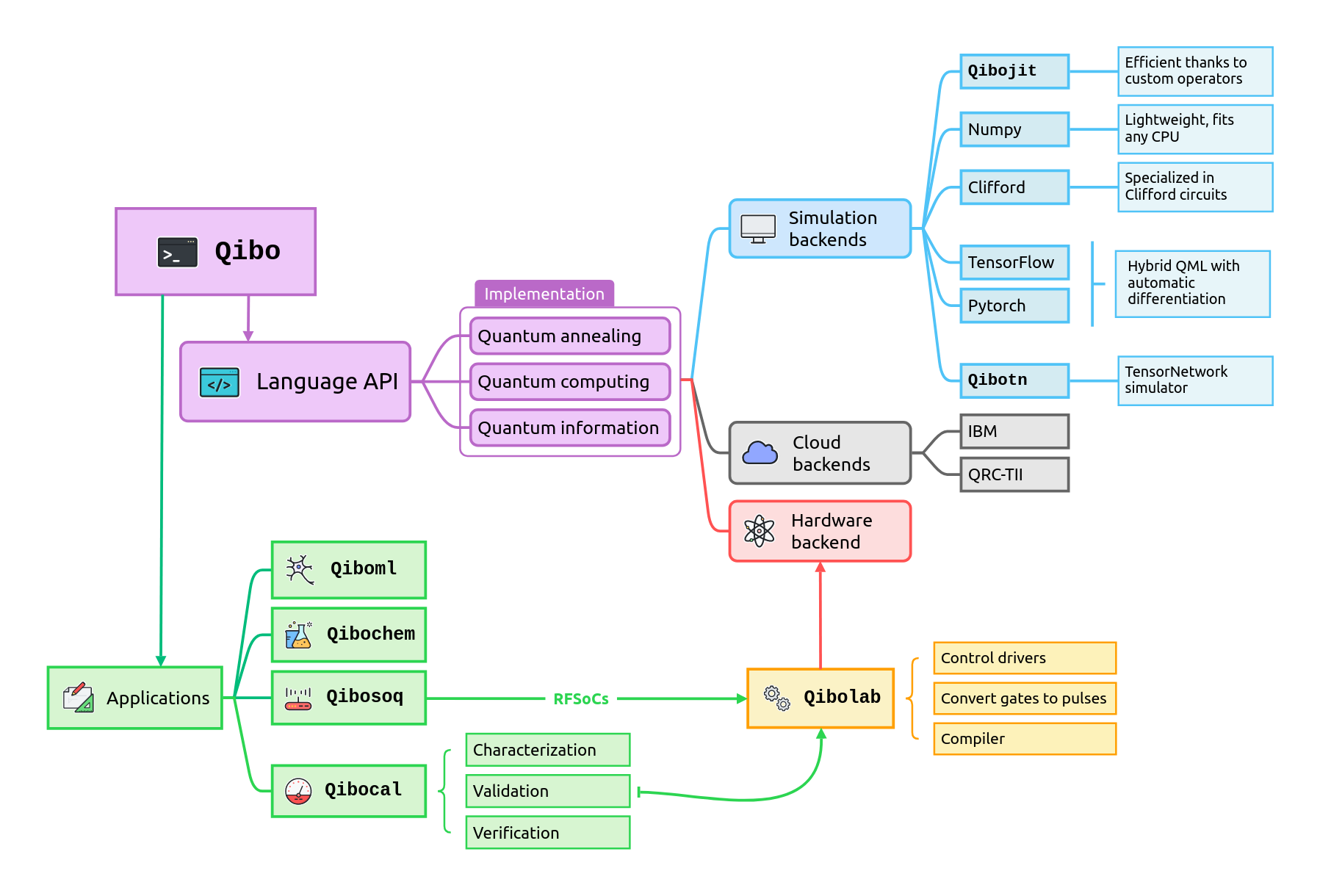What is Qibo?#
Qibo is an open-source full stack API for quantum simulation and quantum hardware control. Qibo aims to contribute as a community driven quantum middleware software with
Simplicity: agnostic design to quantum primitives.
Flexibility: transparent mechanism to execute code on classical and quantum hardware.
Community: a common place where find solutions to accelerate quantum development.
Documentation: describe all steps required to support new quantum devices or simulators.
Applications: maintain a large ecosystem of applications, quantum models and algorithms.
Components#
The main components of Qibo are presented in Getting started

Key features#
Definition of a standard language for the construction and execution of quantum circuits with device agnostic approach to simulation and quantum hardware control based on plug and play backend drivers.
A continuously growing code-base of quantum algorithms applications presented with examples and tutorials.
Efficient simulation backends with GPU, multi-GPU and CPU with multi-threading support.
Simple mechanism for the implementation of new simulation and hardware backend drivers.
How to Use the Documentation#
Welcome to the comprehensive documentation for Qibo! This guide will help
you navigate through the various sections and make the most of the resources
available.
Installation and Setup: Begin by referring to the Getting started and Backend drivers guide to set up the
Qibolibrary in your environment.Tutorials: Explore the Code examples section for a range of tutorials that cater to different levels of expertise. These tutorials cover basic examples, advanced examples and tutorials with algorithm for specific applications.
API Documentation: Dive into the API reference section, which offers a detailed overview of the main components that constitute the
QiboAPI. This section provides a comprehensive understanding of the key elements, helping you build a holistic view of the API’s capabilities.Backends: The documentation present in this document is limited to Qibo’s high-level API, please visit the external links listed in the left navigation bar to learn more about external backends such as
Qibolab.
Contents#
Introduction
Main documentation
Appendix
Documentation links
Indices and tables#
Supporters and collaborators#
Quantum Research Center, Technology Innovation Institute (TII), United Arab Emirates
Università degli Studi di Milano (UNIMI), Italy.
Istituto Nazionale di Fisica Nucleare (INFN), Italy.
Università degli Studi di Milano-Bicocca (UNIMIB), Italy.
European Organization for Nuclear research (CERN), Switzerland.
Universitat de Barcelona (UB), Spain.
Barcelona Supercomputing Center (BSC), Spain.
Qilimanjaro Quantum Tech, Spain.
Centre for Quantum Technologies (CQT), Singapore.
Institute of High Performance Computing (IHPC), Singapore.
National Supercomputing Centre (NSCC), Singapore.
RIKEN Center for Computational Science (R-CCS), Japan.
NVIDIA (cuQuantum), USA.